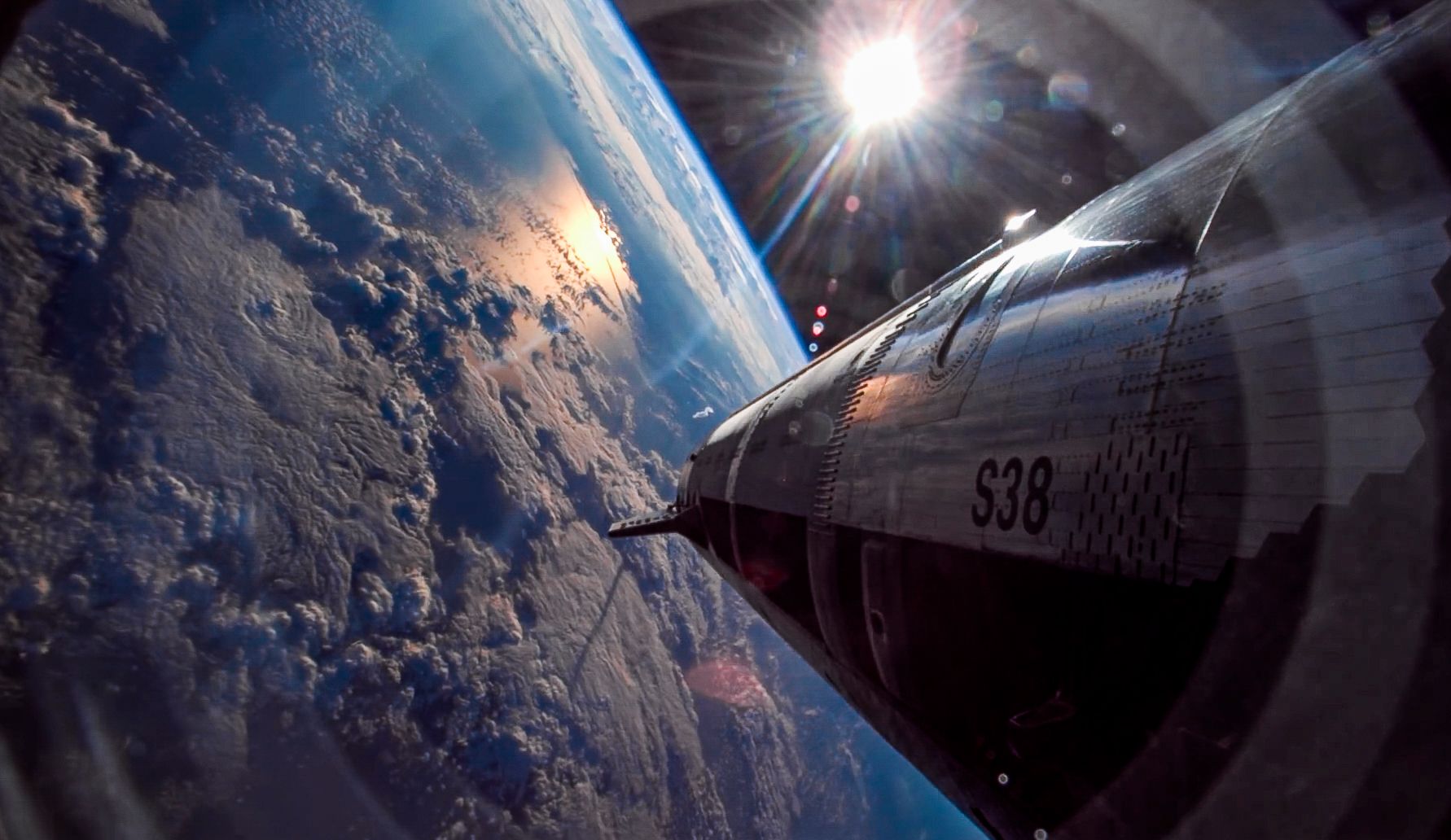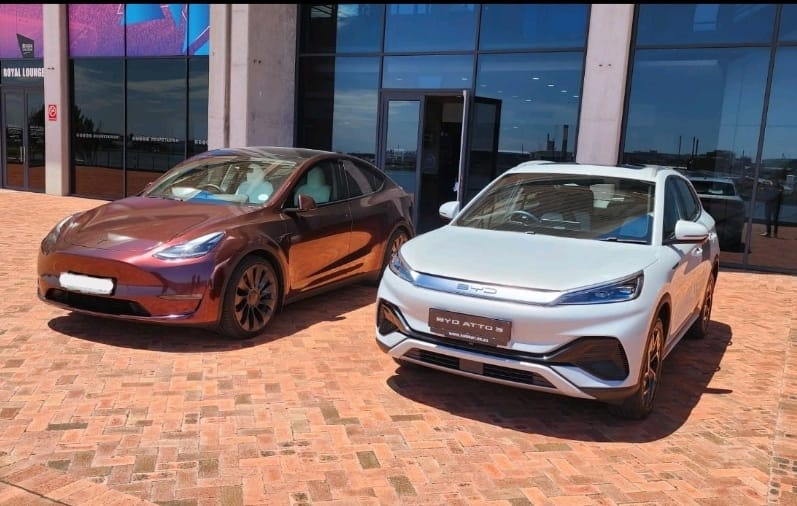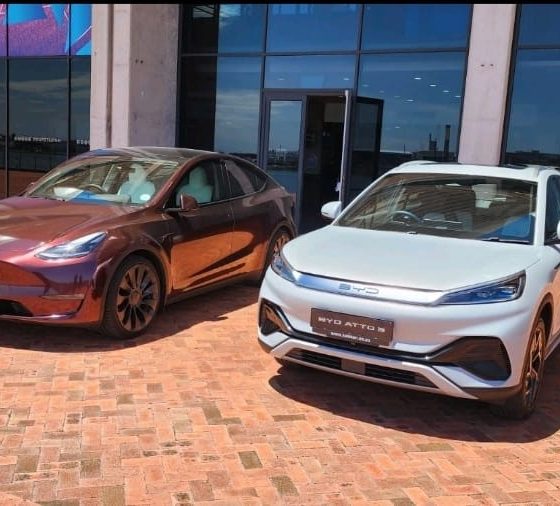Tesla has once again outpaced Chinese automotive giant BYD in quarterly sales, after China’s largest electric vehicle (EV) maker briefly outsold the U.S. company in Q4.
BYD and Tesla both reported their first-quarter delivery numbers on Tuesday (BYD reported estimates), with both automakers feeling the effects of a slight slowdown in global EV markets. Tesla delivered 386,810 vehicles in Q1, while BYD delivered approximately 300,114 battery-electric vehicles (BEVs).
The news also means that Tesla regained the title of the world’s largest BEV seller, after holding it for most of last year, and briefly being outpaced by BYD in Q4 for the first time.
For Tesla, the deliveries marked an 8.5 percent decline year over year, down from 422,875 vehicles delivered in Q1 2023, and a roughly 20.2 percent drop from Q4. BYD also fell 43 percent from its record quarterly high of 526,409 BEV units sold in Q4, though it also saw BEV sales increase 36 percent from the first quarter of 2023.
Notably, China remains an important market for Tesla, though BYD doesn’t yet sell vehicles in the U.S. and has said it doesn’t plan to enter the market anytime soon. Following widespread reports of BYD supposedly becoming the world’s largest BEV seller in Q4, some pointed out Tesla’s operation of fewer factories, its larger net profit levels, and its substantially lower number of workers.
In addition, Tesla CEO Elon Musk responded to the reports, pointing to Tesla’s status as much more than just an automotive company.
Tesla is an AI/robotics company that appears to many to be a car company
— Elon Musk (@elonmusk) January 3, 2024
That particular point feels especially relevant as Tesla has officially changed the “beta” moniker Full Self-Driving (FSD), instead dubbing the system “FSD (Supervised)” as it rolls out the highly anticipated v12, free trials, and mandatory FSD demos on delivery.
Also, it’s worth noting that Tesla and BYD have both been vocal about competition being necessary to help achieve widespread BEV adoption. In February, BYD Vice President Stella Li called Tesla a “partner” in electrification, noting that the BEV transition would not be happening so quickly without the U.S. automaker.
Without naming names, Musk last year said that Chinese automakers were “highly competitive these days,” and he has consistently pointed to the market as being deserving of praise.
Plus, many at Tesla and in the larger Tesla community have regularly pointed out over the years that the U.S. BEV maker can’t electrify the entire global market on its own, and that the whole auto industry must work together to help make transportation more sustainable.
What are your thoughts? Let me know at zach@teslarati.com, find me on X at @zacharyvisconti, or send us tips at tips@teslarati.com.

News
Tesla ends Full Self-Driving purchase option in the U.S.
In January, Musk announced that Tesla would remove the ability to purchase the suite outright for $8,000. This would give the vehicle Full Self-Driving for its entire lifespan, but Tesla intended to move away from it, for several reasons, one being that a tranche in the CEO’s pay package requires 10 million active subscriptions of FSD.

Tesla has officially ended the option to purchase the Full Self-Driving suite outright, a move that was announced for the United States market in January by CEO Elon Musk.
The driver assistance suite is now exclusively available in the U.S. as a subscription, which is currently priced at $99 per month.
Tesla moved away from the outright purchase option in an effort to move more people to the subscription program, but there are concerns over its current price and the potential for it to rise.
In January, Musk announced that Tesla would remove the ability to purchase the suite outright for $8,000. This would give the vehicle Full Self-Driving for its entire lifespan, but Tesla intended to move away from it, for several reasons, one being that a tranche in the CEO’s pay package requires 10 million active subscriptions of FSD.
Although Tesla moved back the deadline in other countries, it has now taken effect in the U.S. on Sunday morning. Tesla updated its website to reflect this:
🚨 Tesla has officially moved the outright purchase option for FSD on its website pic.twitter.com/RZt1oIevB3
— TESLARATI (@Teslarati) February 15, 2026
There are still some concerns regarding its price, as $99 per month is not where many consumers are hoping to see the subscription price stay.
Musk has said that as capabilities improve, the price will go up, but it seems unlikely that 10 million drivers will want to pay an extra $100 every month for the capability, even if it is extremely useful.
Instead, many owners and fans of the company are calling for Tesla to offer a different type of pricing platform. This includes a tiered-system that would let owners pick and choose the features they would want for varying prices, or even a daily, weekly, monthly, and annual pricing option, which would incentivize longer-term purchasing.
Although Musk and other Tesla are aware of FSD’s capabilities and state is is worth much more than its current price, there could be some merit in the idea of offering a price for Supervised FSD and another price for Unsupervised FSD when it becomes available.
Elon Musk
Musk bankers looking to trim xAI debt after SpaceX merger: report
xAI has built up $18 billion in debt over the past few years, with some of this being attributed to the purchase of social media platform Twitter (now X) and the creation of the AI development company. A new financing deal would help trim some of the financial burden that is currently present ahead of the plan to take SpaceX public sometime this year.

Elon Musk’s bankers are looking to trim the debt that xAI has taken on over the past few years, following the company’s merger with SpaceX, a new report from Bloomberg says.
xAI has built up $18 billion in debt over the past few years, with some of this being attributed to the purchase of social media platform Twitter (now X) and the creation of the AI development company. Bankers are trying to create some kind of financing plan that would trim “some of the heavy interest costs” that come with the debt.
The financing deal would help trim some of the financial burden that is currently present ahead of the plan to take SpaceX public sometime this year. Musk has essentially confirmed that SpaceX would be heading toward an IPO last month.
The report indicates that Morgan Stanley is expected to take the leading role in any financing plan, citing people familiar with the matter. Morgan Stanley, along with Goldman Sachs, Bank of America, and JPMorgan Chase & Co., are all expected to be in the lineup of banks leading SpaceX’s potential IPO.
Since Musk acquired X, he has also had what Bloomberg says is a “mixed track record with debt markets.” Since purchasing X a few years ago with a $12.5 billion financing package, X pays “tens of millions in interest payments every month.”
That debt is held by Bank of America, Barclays, Mitsubishi, UFJ Financial, BNP Paribas SA, Mizuho, and Société Générale SA.
X merged with xAI last March, which brought the valuation to $45 billion, including the debt.
SpaceX announced the merger with xAI earlier this month, a major move in Musk’s plan to alleviate Earth of necessary data centers and replace them with orbital options that will be lower cost:
“In the long term, space-based AI is obviously the only way to scale. To harness even a millionth of our Sun’s energy would require over a million times more energy than our civilization currently uses! The only logical solution, therefore, is to transport these resource-intensive efforts to a location with vast power and space. I mean, space is called “space” for a reason.”
The merger has many advantages, but one of the most crucial is that it positions the now-merged companies to fund broader goals, fueled by revenue from the Starlink expansion, potential IPO, and AI-driven applications that could accelerate the development of lunar bases.
News
Tesla pushes Full Self-Driving outright purchasing option back in one market
Tesla announced last month that it would eliminate the ability to purchase the Full Self-Driving software outright, instead opting for a subscription-only program, which will require users to pay monthly.

Tesla has pushed the opportunity to purchase the Full Self-Driving suite outright in one market: Australia.
The date remains February 14 in North America, but Tesla has pushed the date back to March 31, 2026, in Australia.
NEWS: Tesla is ending the option to buy FSD as a one-time outright purchase in Australia on March 31, 2026.
It still ends on Feb 14th in North America. https://t.co/qZBOztExVT pic.twitter.com/wmKRZPTf3r
— Sawyer Merritt (@SawyerMerritt) February 13, 2026
Tesla announced last month that it would eliminate the ability to purchase the Full Self-Driving software outright, instead opting for a subscription-only program, which will require users to pay monthly.
If you have already purchased the suite outright, you will not be required to subscribe once again, but once the outright purchase option is gone, drivers will be required to pay the monthly fee.
The reason for the adjustment is likely due to the short period of time the Full Self-Driving suite has been available in the country. In North America, it has been available for years.
Tesla hits major milestone with Full Self-Driving subscriptions
However, Tesla just launched it just last year in Australia.
Full Self-Driving is currently available in seven countries: the United States, Canada, China, Mexico, Australia, New Zealand, and South Korea.
The company has worked extensively for the past few years to launch the suite in Europe. It has not made it quite yet, but Tesla hopes to get it launched by the end of this year.
In North America, Tesla is only giving customers one more day to buy the suite outright before they will be committed to the subscription-based option for good.
The price is expected to go up as the capabilities improve, but there are no indications as to when Tesla will be doing that, nor what type of offering it plans to roll out for owners.










